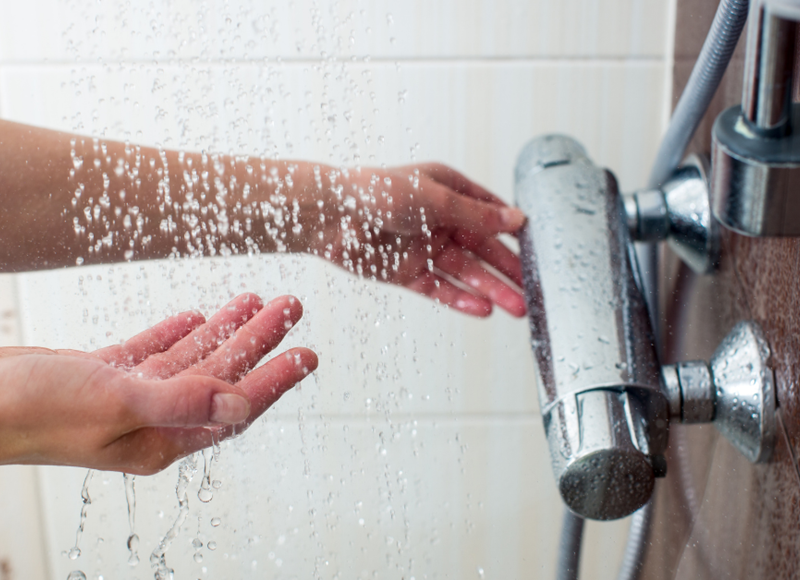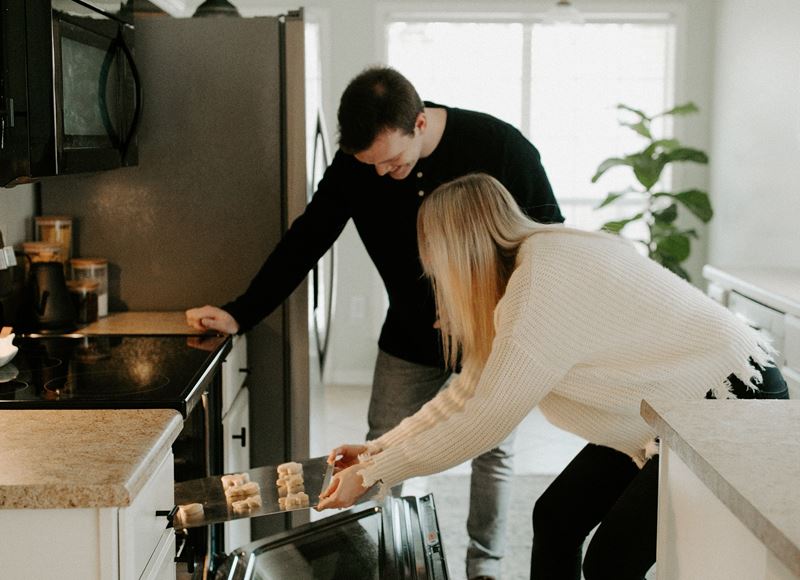Heating Myths - True or False?
“It is better to keep your heating on low all day” - FALSE
According to the Energy Saving Trust, this one is a myth. They explain that having your heating on all day, leads to losing energy all day and therefore, it will cost you less if you just put your heating on when you require it. However, this is disputed by some specialists who argue every time you turn the heating off condensation collects within the walls, and then acts as a conductor for heat, aiding heat loss through the walls. Therefore, it is best to find a balance, for example only putting the heating on twice a day for longer rather than having it on all the time or keep switching it on and off when you need it.
“Turning up the thermostat heats the house faster” - FALSE
Turning up the thermostat will not heat your house faster; it will simply heat your house to a higher temperature and ultimately cost you more in energy bills. Whether you have your thermostat set to 18⁰C or 21⁰C it will still heat your house at the same rate, the heating will just stay on longer to reach the higher temperature. Only switch your thermostat on to the temperature that you need it, and remember, reducing your thermostat by just 1⁰C can save £55 a year for an average household.
“Most heat energy is lost through windows” - FALSE
Despite popular beliefs that most heat is lost through your windows, most heat in your house is lost through the walls. Between 35-45% of heat can be lost through your walls, with another 20% escaping out the roof. Whereas approximately only 10% is lost through the windows. Therefore, it would be wise to consider your wall and roof insulation options before replacing your windows to ensure you are conserving as much heat as possible. You can still help to reduce heat loss through your windows by fitting curtains and keeping them drawn in the evenings to retain heat.

Shower over Bath: Most people fill their bathtubs around two thirds full, which uses around 80 litres of water, whereas a short shower uses a lot less. If you prefer a bath to a shower, try filling it up a little less. If you have children, add a little bubble bath to the tub when bathing them and they won't even notice there's less water!
TIME IT RIGHT: Most of us spend around seven minutes in the shower. But if everyone in your family hopped out just one minute earlier, it would save around £60 on energy costs.

Wash full loads where possible. Your washing machine uses the same amount of energy per use, no matter how much is in there. So fill up where you can. Use your machine’s eco setting or turn the temperature down to 30 degrees. Switching from warm water to cold water can cut one load’s energy use by more than half.
Drying clothes:
- Use lower heat settings to dry clothing. Regardless of drying time, you’ll still use less energy.
- Use dryer balls. Dryer balls, usually wool or rubber, will help keep clothes separated for faster drying, and they can help reduce static, so you can eliminate dryer sheets.

But there are ways you can bring this down without having to invest in a brand-new appliance or adjust your eating times.
- It’s more energy efficient to boil your water in a kettle than on a hob. Once it has boiled, you can then transfer it to a saucepan.
- Only use the amount you need as it will take less time to come to the boil. Covering your pan with a lid will also help you to use less energy.
- Have you thought about steaming vegetables instead of boiling them? This process uses less energy and water and can also help the vegetables to retain more of their nutrients. After the water has cooled down, it can be used in your garden or to water house plants.
Using an Air fryer to cook two or three meals a week could save you up to £250 a year. Microwaves are more efficient than ovens as they only heat the food and not the air space inside.







